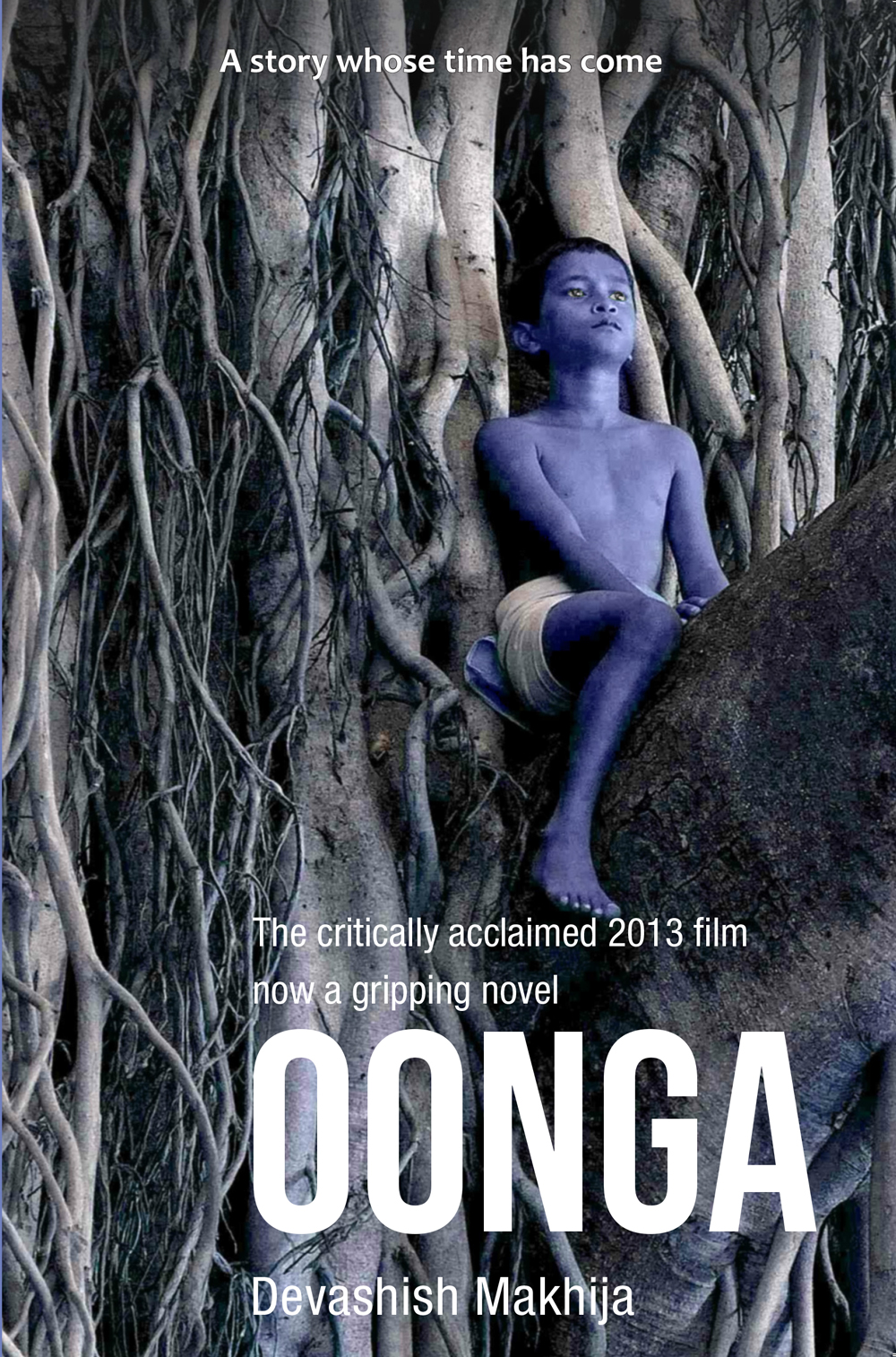
Publisher : Tulika Books
Author : Devashish Makhija
synopsis
‘Oonga‘ sits deep in the clash between the Adivasis, the Naxalites, the CRPF and a rapacious mining company. It moves between lyrical innocence and militant justice, fear and brutal oppression – ramping up the tempo till all explodes.
At the centre of all of this is a little Dongria Kondh tribal boy, Oonga, who, desperate to see a performance of the Ramayana, goes on an epic journey to the big city – to return metamorphosed into the blue Adivasi prince of the forest, Rama himself! And, Rama-like, he must now take on the gun-wielding demons of the State, who have swooped down on his village after abducting its passionately idealistic but pragmatic teacher, Hemla didi.
With echoes of real incidents, multiple perspectives, and a retelling of mythology, the book attempts to expose the dystopia of ‘development’ and conflict of ideologies, complicated by the faultlines of language. Showing how peaceful people become victims of violence and are forced into battles they don’t want to fight.
awards & recognition
Winner of the Neev Book Award 2021 in the Young Adult Novel Category
“This year’s winner is a mature book… The narrative includes elements of the onomatopoeic, the impressionistic and the magical in its scathing attack on corruption, apathy and in showing the suffering of indigenous people… This book is remarkable for building a powerful thematic structure by controlling several interacting leitmotifs. These interacting ideas bring within the novel’s scope a staggering range of subtexts from hope in human wisdom to near despair at human depravity.”
~ the Neev Literature Awards Jury
Book Available Here
reviews
- “Spellbinding… ‘Oonga’ presents itself as an ‘ecological odyssey’ similar to the modernist colonial odysseys of the early 20th century… explores systemic violence from a psychosomatic perspective, to impress upon the reader that it perpetuates through the corruption of the human mind and degeneration of soul, rather than external bloodshed and mutilation… (it’s) exposition on cultural hegemony is ingenious.”
~ Sunipa Das Gupta, The Wire - “…brings out the essence of what it means to be in Oonga’s world: to straddle between pumpkins, bamboo, and grain, and rifles, blood and death.”
~ Mid-Day - “Has the feel of a screenplay… Addresses urgent real-life problems and doesn’t shy away from depicting very real horrors.”
~ The Hindu - “A filmmaker’s flair is evident in the beautiful imagery… A tightly knit gripping tale about the dilemma of tribals… A great well written story told with passion and conviction.”
~ Shoma Abhyankar (Book Critic) - “Oonga is naughty, Oonga is lazy, Oonga is brave, Oonga is curious, Oonga is adorable, Oonga is impish and the book has the reader rooting for Oonga from the beginning till the end. One worries for his safety, laughs at his pranks and heaves a sigh of relief as he makes it back home to the safety of his mother. Almost all characters are as multi-dimensional and interesting as Oonga… Highly recommended.”
~ Winnowed (Book Critique Blog) - “‘Oonga’ is a complicated tale of a complicated existence in a place where simplicity still reigns… very much a reflection of that dichotomy between the New India and the Old India, and why they struggle so much to speak the same language, both literally and figuratively.”
~ Josh Hurtado, Twitch - “Remarkably free from the good-versus-evil narrative dynamics… The gallery of characters in Oonga reflects that non-judgmental philosophy. (The story) articulates its concerns through the means of an entertaining parable that does not resort to any chest-thumping.”
~ Saibal Chatterjee, Civil Society Online - “‘Oonga’ resurrects Ram not as an emperor, but a forest dweller who had to fight, with an army of ill-equipped monkeys —also forest dwellers—a powerful king who abducted his wife. A Ram who may have been more than a little upset with mobs demolishing other places of worship, ransacking homes and raping and murdering members of a minority community in his name.
As the story progresses, Oonga transforms into an idea of Ram, come despairingly alive: an angry eight year old boy, blue paint smeared all over himself, with a bow and arrow in his hands— not in the middle of a theme park or a Ram Leela field, but a battlefield.”
~ The Big Indian Picture
Details for Options / Rights to adapt this work into the audio-visual format, to be shared on request.
